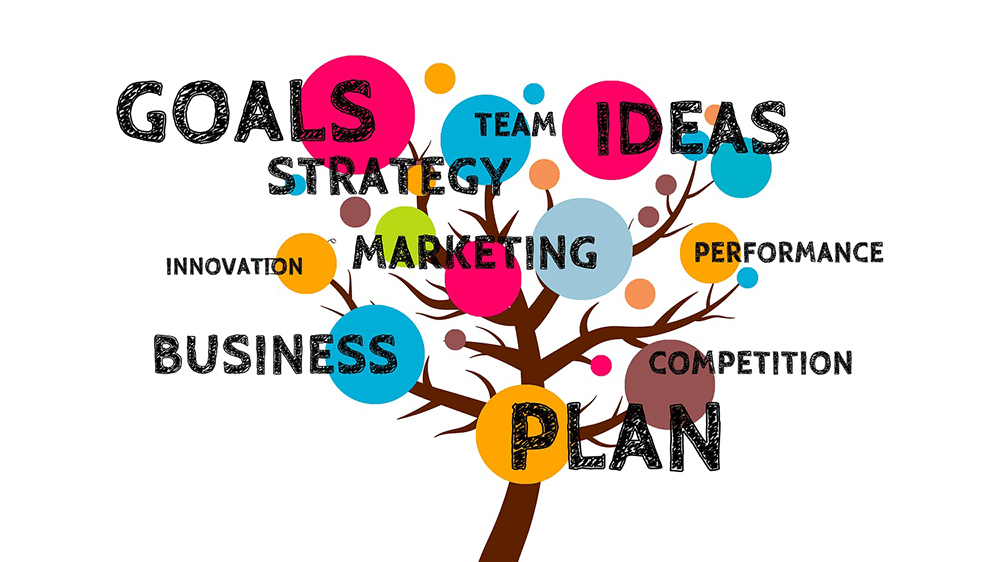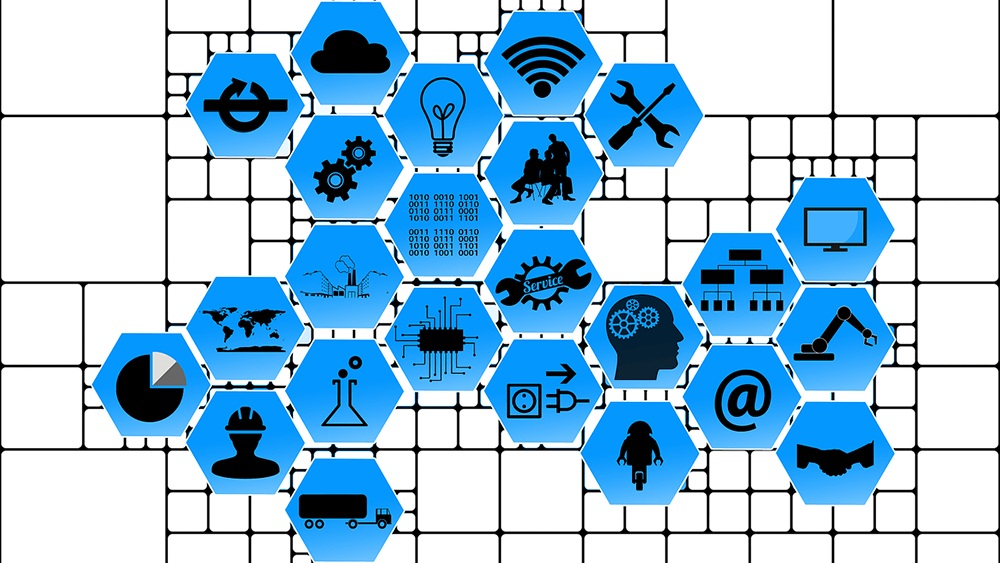
Oct 30, 2019 | Commercialization, Genetics, Microbiome
A selection of health news from the University of Chicago and around the globe curated just for you.
In the pancreas, common fungi may drive cancer
A new study found that certain fungi can settle in the pancreas, where the spur the growth of tumors. (New York Times and ScienceDaily)
Genetic differences in the immune system shape the microbiome
UChicago researchers showed that while the bacteria to which mice were exposed largely determined their resulting microbiome, genetic differences played a role as well. Drs. Chervonsky, Golovkina, Khan, and Antonopoulos featured. (The Forefront)
Polsky Center named the 2019 NASDAQ Center of Entrepreneurial Excellence
The award, presented at the annual Global Consortium of Entrepreneurship Centers, represents the highest honor that university entrepreneurship centers can receive. (Polsky Center)
PTSD nearly doubles risk for infections
The study found that PTSD affects infection risks for men and women differently, having, for example, more of an effect on a woman’s risk of urinary tract infection and a man’s risk of skin infection. (Futurity)
A new CRISPR technique could fix almost all genetic diseases
A less error-prone DNA editing method could correct many more harmful mutations than was previously possible. (WIRED)

Mar 28, 2019 | Commercialization, Immunology, Microbiome, News Roundup
A selection of health news from the University of Chicago and around the globe curated just for you.
Polsky Center’s Life Science Launchpad partners with faculty to launch startups
The Launchpad bridges the gap between academic research and entrepreneurship by forming hands-on partnerships with life sciences researchers who seek to convert their research products into business ventures. Cathryn Nagler and Eugene Chang featured. (Polsky Center for Entrepreneurship and Innovation)
How the microbiome could be the key to new cancer treatments
The effectiveness of drugs that help the immune system fight cancer cells appears to depend on bacteria in the gut. (Smithsonian magazine)
Training cells to attack
Groundbreaking CAR T-cell therapy engineers cells to target tumors. Michael Bishop featured. (Chicago Health)
How to reduce the chances of being hospitalized for Crohn’s disease
Take these steps to lessen the risk of complications from the inflammatory bowel disease. David Rubin featured. (U.S. News and World Report)
Real innovation is going to be centered on how we collect, standardize, and harmonize data
Bridging the gap between clinical care and research means creating two-way collaboration, and improving the way in which data is collected, organized, shared. Sam Volchenboum featured. (Outsourcing-Pharma.com)

Oct 10, 2018 | Commercialization
by Matthew Eckwahl, PhD
Postdoctoral fellow in the Department of Biochemistry & Molecular Biology
Claire Stevenson Stedden
Graduate student in the Committee on Development, Regeneration and Stem Cell Biology
While Silicon Valley may be the first place people think of for startups, Chicago has rapidly turned into a leading hub of entrepreneurial productivity, ranked as one of the best US cities for new companies. One driving force of this flourishing ecosystem: tech accelerators, designed to help startups quickly become self-sufficient. The University of Chicago’s New Venture Challenge is recognized as among the best in the country; famous businesses birthed here include GrubHub and BrainTree (acquired by PayPal in 2013 for $800 million).
UChicago’s Polsky Center recently put their summer accelerator cohort to the test at Demo Day, a showcase for new business pitches. The event provided a chance for each startup to evaluate how ten weeks of intensive work held up in the eyes of expert judges.
Two groups of this cohort aspire to use science to both make the world a better place and turn a profit. SinkGuard Inc. wants to make hospitals safer, while BTRFY seeks to upcycle food waste into sustainable snacks. Startups like these help drive Chicago’s research ecosystem.
Healthier hospitals
SinkGuard, winner of the audience choice award at Demo Day, intends to reduce hospital acquired infections—a huge health care burden estimated to contribute to 99,000 deaths each year—simply by modifying the sink drains in patients’ rooms.
During hand washing, rinsed-off bacteria fall into the sink drain and stay there. Studies have found that the drains act as reservoirs for the bacteria to grow and spread back into the room.
This is especially concerning for certain types of bacteria, including Pseudomonas and Klebsiella, major problems in the intensive care unit. Studies, including one that inspired Ted Engels, SinkGuard’s founder, show that removing sinks (along with “water-safe” policies like disposing waste water outside patient rooms and using special washcloths instead of water) are effective ways to fight dangerous bacteria.
Why not just clean the sink? Cleaning actually fails to fully eliminate contamination, possibly because the bacteria live deeper in the pipes than disinfecting agents can effectively reach.
This is where Engels’s solution comes in. A recent UChicago alumnus, Engels is developing a first-generation “antimicrobial and self-disinfecting sink drain” that “stops the growth of deadly bacteria.” The drain can be retrofitted onto existing hospital sinks, minimizing the burden and cost of implementation—an added bonus for healthcare systems.
A practical new protein source
In contrast to SinkGuard, BTRFY (pronounced “better-fy”) aims to transform food waste into enticing snacks using fungal fermentation. BTRFY’s CEO, Tyler Huggins, who earned his PhD in civil and environmental engineering at the University of Colorado Boulder, is motivated by the urgent need for more ecofriendly protein sources.
Food waste is a massive problem: more than one-third of all food that’s grown becomes garbage—over 1.3 billion tons per year. The enormous amounts of water and other resources used growing, preparing, and bringing these foods to market exert a tremendous environmental impact, and food rotting in landfills gives rise to vast quantities of greenhouse gasses that threaten our planet.
BTRFY, which was also selected for Argonne’s highly competitive Chain Reaction Innovations program, repurposes the nutrient-rich water left over after brewing beer. Instead of sending this water to costly wastewater treatment, BTRFY feeds brewery water to mycelium—also known as mushroom roots—promoting extremely rapid growth. BTRFY harvests and dries their mycelium “crop” to produce a flour-like product that can be baked into high protein snacks. Their first product, MycoCrisps, is described as having a pleasingly cheesy taste with a “hint of umami.”
While BTRFY’s mycelium reputedly has a fondness for double dark stout, it’s happy to grow on a variety of nutrient sources, including unwanted byproducts from wineries and the dairy industry. “I want my kids to look back in amazement at the stuff we used to throw out,” noted Tyler. BTRFY is proud of its low carbon footprint and aims to make a “tasty snack that is not just better for you, but better for the planet.”
With a global population projected to reach nearly 10 billion by 2050, the world faces a rising demand for protein. Mycelia offer a promising solution: unlike many plant-based foods, they are a complete protein source and can be rapidly and sustainably grown. In fact, one fungal species has the distinction of being the world’s largest organism, so mycelium offers great potential for scalability. “Snacks are only the beginning—just a demonstration of what we’re trying,” Tyler said.
By transforming new startups into viable companies, UChicago accelerators are a key part of Chicago’s burgeoning tech scene. Both Tyler and Ted agree the Polsky Center helped their companies forge ahead. The program provided “amazing support” and “helped to keep us on path and accelerate quickly,” Tyler said. “Getting to interact with the other startups was important and motivated me,” Ted attested.
It will be exciting to see what the future holds for these and other upcoming Chicago companies looking to harness technology to make a difference.

Sep 28, 2018 | Commercialization, Food Allergies, Microbiome, News Roundup, Research
A selection of health news from the University of Chicago and around the globe curated just for you.
The end of an epidemic
The number of people with food allergies has exploded in recent years. A dream team of researchers from UChicago may have figured out why, and now they’re developing therapies that could end the epidemic. Cathy Nagler featured. (Chicago magazine)
UChicago startup gets $2.3 million for kidney stone prevention
Biotechnology startup Oxalo Therapeutics is closer to developing a first-of-its-kind drug to prevent kidney stones thanks to $2.3 million from the National Institutes of Health. Hatim Hassan and Yang Zheng featured. (Crain’s Chicago Business)
Science by the sea
In three weeks, there are just over 500 hours. The students in the Marine Biological Laboratory’s September intensive courses tried to use them all. Jack Gilbert featured. (UChicago Magazine)
Nasal bacteria linked to cold severity
In a study, people with certain bacteria in their noses were more likely to develop more severe cold symptoms. (U.S. News & World Report)
Brain-gut link may be way faster than we thought
New research with mice may upend our understanding of the connection between the gut and the brain, as well as appetite. (Futurity)

Aug 29, 2018 | Cancer, Commercialization, Microbiome, News Roundup
A selection of health news from the University of Chicago and around the globe curated just for you.
UChicago awarded $1 million grant to study microbiome dynamics
Researchers from UChicago have received a $1 million grant from the W.M. Keck Foundation to study how the molecular activity of the microbiome changes in response to the environment. Eugene Chang and Tao Pan featured. (The Forefront)
Reliable point-of-care blood test can help prevent toxoplasmosis
A recent study, performed in Chicago and Morocco found that a novel finger-prick test can accurately predict infection with the parasite Toxoplasma gondii during pregnancy. Rima McLeod, whose broader work is reported in an earlier WellNews post, featured. (The Forefront)
‘Zombie gene’ protects against cancer—in elephants
With such enormous bodies, elephants should be particularly prone to tumors. But an ancient gene in their DNA, somehow resurrected, seems to shield the animals. Vincent Lynch featured. (New York Times)
Hospital bacteria are starting to tolerate hand sanitizer
Strains of bacteria have developed increased tolerance to the alcohols in hand sanitizers, which requires hospitals to rethink how they protect patients from drug-resistant bacteria. (Futurity)
Oxalo Therapeutics among recipients of scholarships from drug accelerator
Cydan II Inc., an orphan drug accelerator dedicated to creating therapies that impact the lives of people living with rare genetic diseases, announced it has selected four start-up organizations and companies, including Oxalo, to receive $5,000 scholarships to support innovations that impact the lives of people with rare conditions. (BusinessWire)

Aug 15, 2018 | Commercialization, Immunology
by Claire Stevenson
Graduate student in the Committee on Development, Regeneration and Stem Cell Biology
Two University of Chicago-based startups, Oxalo Therapeutics and ImmunArtes, recently beat out fierce competition to be chosen for MassChallenge Boston, a global start-up accelerator with a focus on high-impact entrepreneurs. With 1600 teams vying for a spot and an 8 percent acceptance rate, this was the most competitive year yet, so getting into the program says a lot about the excitement around these two companies.
MassChallenge is a not-for-profit accelerator that offers world-class programming. The vision of its founders is toward a “creative, inspired society in which everyone is empowered and has the resources to maximize their impact.” Through its flagship location in Boston, and many others worldwide, MassChallenge runs programs and draws teams from around the world.
A sought-after feature of MassChallenge is the opportunity to make connections with top corporate partners and build a network of expert mentors. The program culminates with teams competing for up to $1.5 million in cash prizes to help grow their businesses, but according to Yang Zheng, co-founder and COO of Oxalo Therapeutics, “the real prize is getting in the Challenge and all the connections you make.”
Oxalo and ImmunArtes both formed less than a year ago and have hit the ground running with investment from the University of Chicago Polsky Center for Entrepreneurship and Innovation. Though Polsky’s Innovation Fund, Oxalo and ImmunArtes won $250,000 and $175,000, respectively, in new venture funding. Oxalo was also awarded $25,000 through the Polsky Center’s New Venture Challenge, the top university accelerator program in the nation. “Chicago is great for STEM and entrepreneurship,” noted Zheng. “The resources here helped us get to this stage.”
Oxalo Therapeutics is developing a first-in-class therapeutic to treat kidney stones, a painful condition that damages the kidneys and increases risk of chronic disease. Oxalo’s preventative drug, derived from a natural gut bacterium, will offer significant advantages over current treatment methods. The Oxalo team’s scientific lead is Hatim Hassan, MD, PhD, a UChicago nephrologist; Zheng, an MBA candidate at the UChicago Booth School of Business, leads the business side.
At MassChallenge Boston, Zheng is particularly excited about the relationships Oxalo is forming with new mentors. They are getting strategic advice about the condition they aim to treat and the drug development route they are pursuing. “The mentors are the biggest help so far,” he said.
ImmunArtes, Chicago’s other competitor, has developed a novel vaccine against staph infections, including the antibiotic resistant strain known as MRSA. Staph infections are a major issue in health care, yet no vaccine currently exists. The team at ImmunArtes, led by Olaf Schneewind, MD, PhD and Dominique Missiakas, PhD, both professors of microbiology at UChicago, has engineered a staph protein that will enable them to overcome hurdles faced by previous attempts at vaccine development.
ImmunArtes is benefiting from the excellent mentorship opportunities at MassChallenge Boston and a nice sense of community that the program provides. “It’s helpful to interact with the other teams and fun to see when you can help them,” notes Chloe Schneewind, manager of ImmunArtes’s communications at MassChallenge.
The team is learning a lot from their time in Boston, but they want to maintain their connection to the Midwest. “Chicago is important to the identity of the company,” Chloe emphasized. “Boston has an entrepreneurial culture and we want to bring this back to Chicago. The Midwest doesn’t yet have the biotech startup culture it deserves.”
But Chicago’s entrepreneurial reputation is growing. “There was a push to get Chicago companies involved in MassChallenge,” Zheng pointed out. “They recognize that there is good technology here, the strong research institutes are drivers [of that].”
A prime example of this is the Duchossois Family Institute, which is making paradigm-shifting investments to push discovery forward and build toward a future in which Chicago is on the map as a center for innovative biotechnology.









